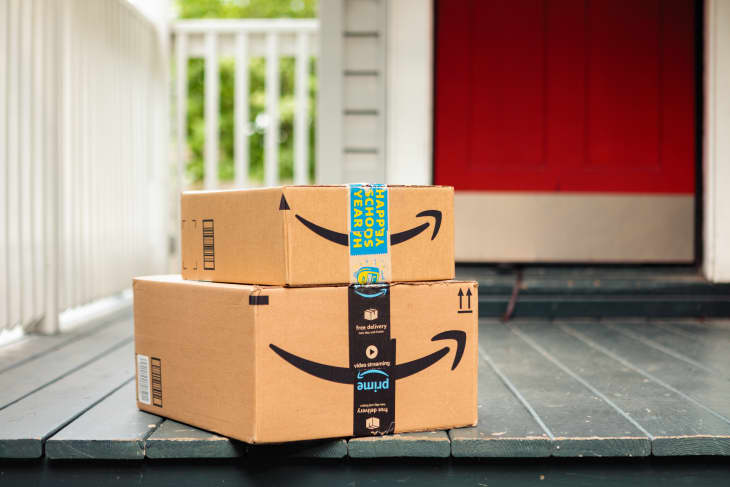Amazon Almost Opened Its Own Version of HomeGoods

While many people rely on Amazon for quick delivery to their doorstep, it looks like the mega-company actually considered opening discount storefronts before the pandemic hit.
In a new report from Bloomberg, an unidentified source shared that Amazon explored the possibility of opening discount retail stores. The stores would carry heavily-discounted unsold inventory that was left over in Amazon warehouses. But it wasn’t just permanent stores they were considering. Pop-up locations in malls or parking lots were also brought into consideration.
“It’s a way to be able to clean out warehouses, and get through inventory without having to destroy it,” the unnamed source told Bloomberg. “It is keeping with the value proposition of Amazon, keeping price at the forefront and allowing customers to get access to products at low cost.”
The focus of the Amazon storefronts would be smaller items that don’t take up a ton of room, like home goods, electronics, toys, baby products and kitchen items. Unlike common discount stores like T.J. Maxx or Marshall’s, clothing wouldn’t be included in the stores.
Of course, Amazon already has a stake in the discount market. The company sells discounted items on its website through the Amazon Outlet, and returned and used items are sold on Amazon Warehouse, Bloomberg added.
While the discussions were described as “preliminary,” the pandemic proved to be the wrench thrown in Amazon’s plan. Instead of developing storefronts, employees were directed to focus on day-to-day operations of the company, as well as their new Fresh grocery chain, which has been expanding since last year. Amazon also has a chain of bookstores, the cashier-less convenience store Amazon Go, and Amazon 4-Star, which sells electronics, home goods and toys. Of course, Amazon also owns supermarket mega-chain Whole Foods.
Amazon has also been moving quickly in recent years to snap up abandoned shopping malls and turn them into fulfillment centers. Between 2016 and 2019, Amazon converted around 25 shopping malls, according to an analysis by Coresight Research, NBC News reported earlier this week. Amazon is reliant on its local fulfillment centers, of which it has more than 100, for quick distribution of goods.
Amazon has profited significantly throughout the pandemic, when people stayed home and avoided heading to local stores in order to eschew the virus. The company’s net sales increased 37 percent in 2020 compared to the year before, and its fulfillment center footprint grew by 50 percent in 2020 compared to the previous year, NBC reported.
